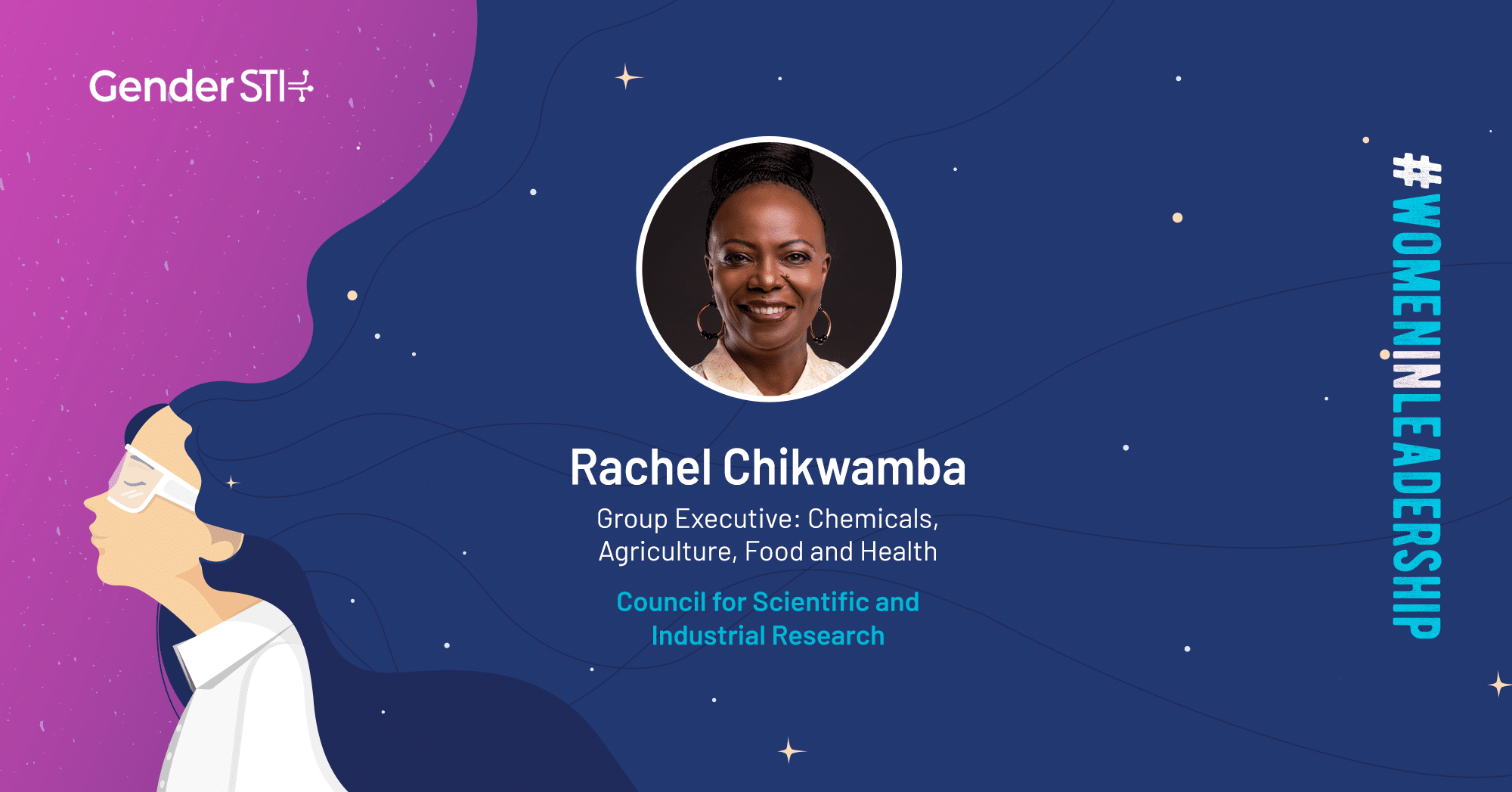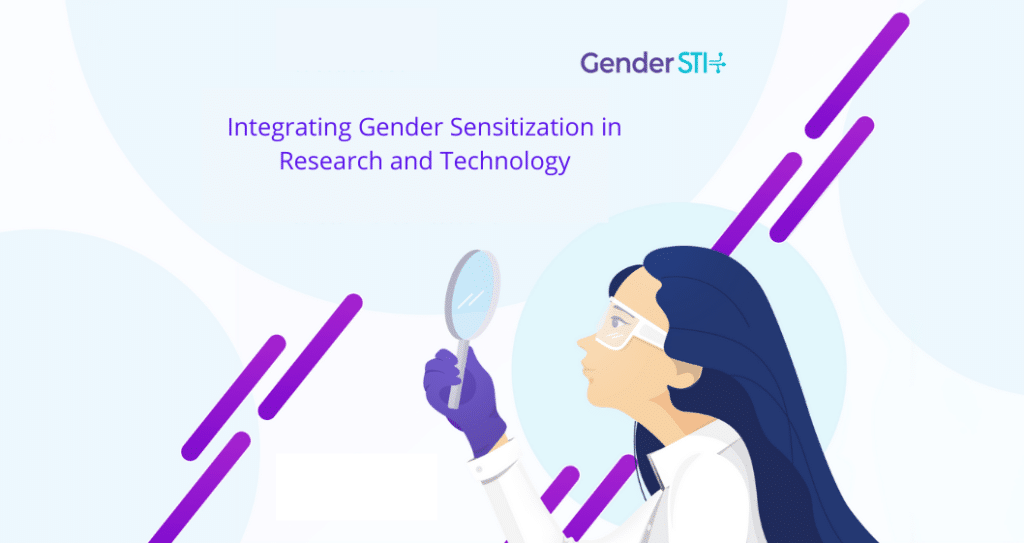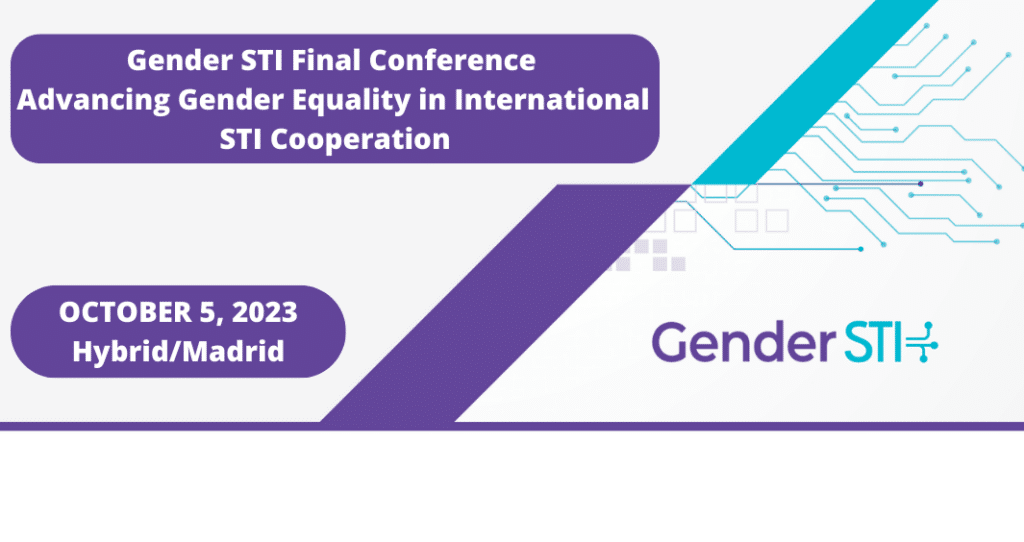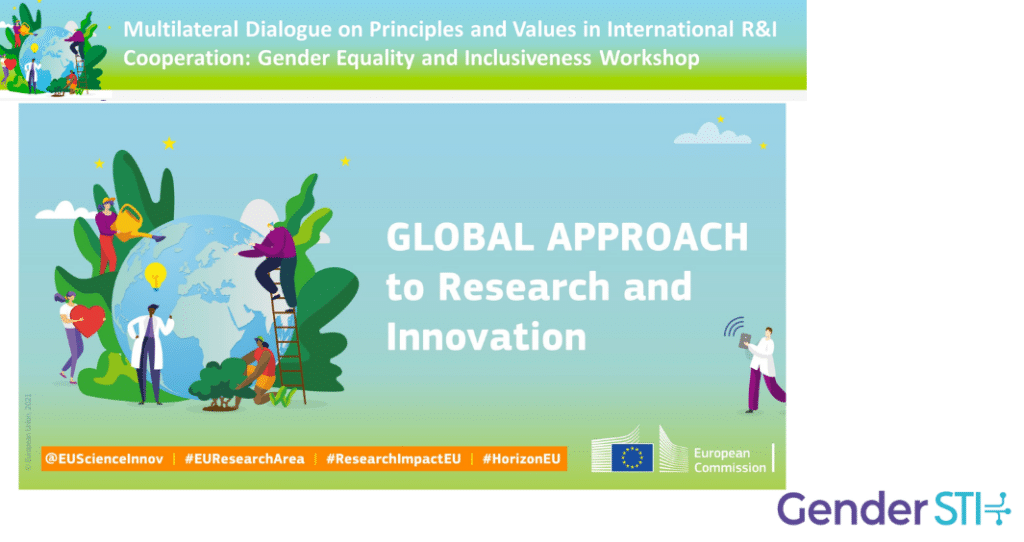Rachel Chikwamba was nominated for Gender STI's #WomenInLeadership Campaign, which celebrates women leaders in science, technology and innovation, by the Council for Scientific and Industrial Research (CSIR) in South Africa.
She is the Group Executive: Chemicals, Agriculture, Food and Health at CSIR. In this role, she leads the implementation of the CSIR’s research, development and innovation strategy in the respective sectors, working closely with local and international partners to contribute to improved sectoral competitiveness and socio-economic performance through innovation. Until recently, she was the Executive responsible for development of the CSIR’s current 4IR-anchored strategy across its multidisciplinary areas of focus. She recently chaired the Panel that developed the Gauteng 4IR Growth and Digitalization strategy.
Chikwamba spoke to Gender STI about her experience as a woman leader in honor of International Women's Day 2021.
Can you tell us a bit about your job and your responsibilities?
I am a Group Executive/Vice president for Chemicals, Agriculture, Food and Health at the Council for Scientific and Industrial Research (CSIR), Africa’s premier multidisciplinary research institute.
Did you face any challenges on your journey to become a woman leader? How did you overcome them?
Yes, indeed. Many of the challenges had to do with doubt cast on my abilities to lead, sometimes self-doubt, but also doubt by other parties. I overcame that through self-belief and determination, demonstration of what I can do in all my assignments from the most trivial to strategic. I made a choice that whatever I chose to do will be excellent. I find myself now quite comfortable in my own skin, with nothing to prove to anyone but myself. Support of family, colleagues, male and female, can of course not be underestimated! I have had mentors who have supported me along the way as well.
What goals do you have as a leader?
To never stop learning, and to never stop seeking the next challenge. My aspirations are to be CEO of my own business empire; I have an idea box that I need to act upon!
How would you describe the gender balance in decision making in science, technology and innovation (STI)?
I think it’s no secret that the decision makers in STI are predominantly male, and that is not to say there are no capable women. Of course, the capable women are a lot less few, because of a problem that starts with the access to education and opportunity that is skewed toward the male child, especially in my part of the world. I think the world is poorer for not giving a chance to the girl child. I think that skewed system then carves out the research agenda in a manner that could have benefited immensely from having women at the top, given our role in society.
What would you tell young girls and women who would like to become leaders in their professional fields one day?
That the sky is the limit, and that gender has nothing to do with their possibilities. In fact, I would point them to role models in the space and encourage them to not be self-limiting. If they are not self-limiting in their perspective and ambition, then certainly no one has the right to limit them. They should not allow it; they should make their dreams real and claim their spots in the fields of their dreams!
As you may know, the Gender STI project focuses on promoting gender equality in international cooperation in STI. Do you have any ideas on how we could promote gender equality in this area?
I think that our international professional societies should encourage and have chapters focusing on the issue of gender in international cooperation, especially providing support to participation in globally funded initiatives and consortia, but also by making it a normal requirement to have women leaders in bi- and multilateral cooperation discussions on STI collaborations. Funders must make this a necessary condition. We must also profile diverse STI women leaders on IWD, but many other days in between.
What do you think needs to be done to increase the number of women leaders in STI?
Perhaps mentor more women in the space, and not shy away from becoming role models once we have made it. Interestingly, mentors for women do not always have to be women, there are great male leaders who are great mentors – my mentors, who have also been my champions to date, have been all males.
Follow Gender STI’s #WomenInLeadership campaign on Twitter, LinkedIn and Facebook for more great interviews. Join the conversation using #WomenInLeadership, #IWD2021 and #GenderSTI.



